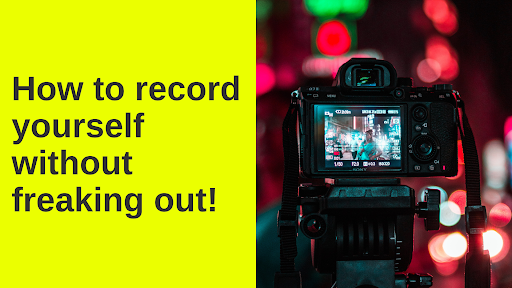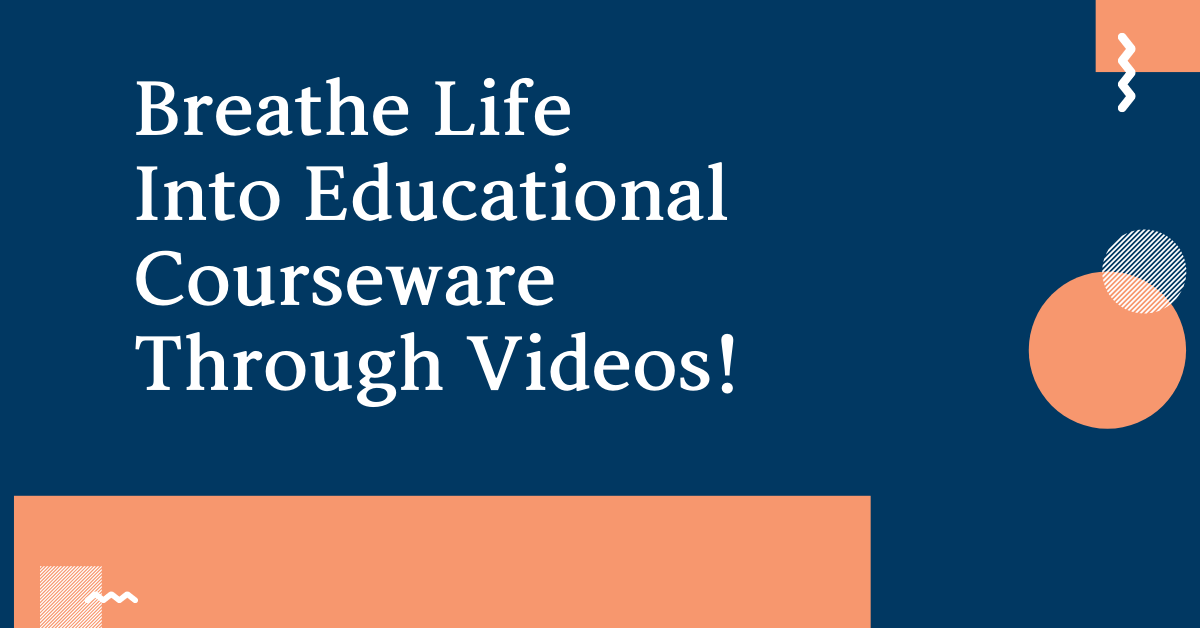Contents
Why do we get uncomfortable in front of a Camera?
Set up a suitable space for recording
Don't worry if you make mistakes
How to Film Yourself Without Freaking Out | Actionable Recording Tips
You were all set. The camera was in front of you, and you had to just record a quick 3-min video. You hit that recording button, feeling all pumped up, and bam, things didn't go as you expected.
You were nervous, your tongue became a wooden piece of meat, and your face by now had a stoic expression.
In the end, you were all nervous and were just staring blankly at the camera.
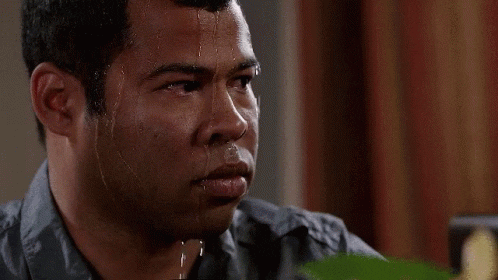
Trust me. You. Are. Not. Alone.
Many people like you have had this same issue.
Even the people you see confident on camera will tell you that they too faced this same issue at their beginning. It's just that with time they got better.
And it's good news for you because if they can, you can too.
We will look at a few simple things you can do to get comfortable—and even feel confident—on camera.
But before that, let's try understanding the "Why" behind this situation.
Why do we get uncomfortable in front of a Camera?

This can be because of three core reasons:
- The fear of being watched
- The fear of how others might perceive us
- The fear of performing in front of unknown people
A video brings these all three pillars together and makes a perfect thunderstorm of paranoia.
These things happen subconsciously, and we will be better positioned the next time we record a video if we are aware of these reasons.
Let's see how we can address these reasons with some actionable points in the following sections.
Actionable Recording Tips
Plan what you are going to say
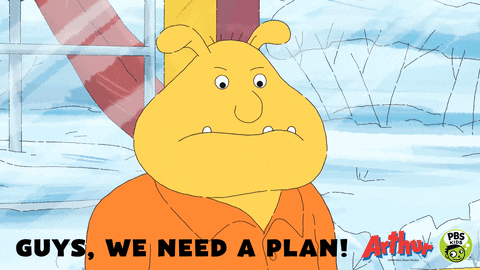
Before you sit down in front of the camera, make sure you know what you will talk about. You can either write down the outline, take notes, or the whole script; it's entirely up to you.
Doing this will help you talk in a flow and help you tackle the performance anxiety when you start your recording.
Once you are sure about your content, you can print the content, have it in front of you, or use a teleprompter while recording your video.
Just make sure to look at the camera when you read your lines.
Now since you know what you will say in front of the camera, the next step is to make it stick to your memory.
Practice, Practice, and Practice before you start your video recording
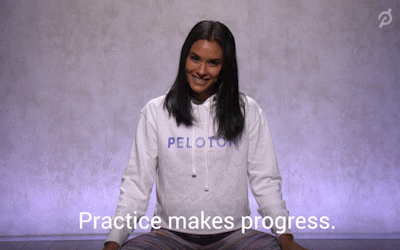
Just set aside some time to visualize and rehearse the content mentally.
This will help you avoid awkward pauses, and filler words like "Um," "Ah," "You know," etc., and help you sound more natural.
Don't worry about memorizing the exact script or lines. Just make sure you know what's to be spoken in sequence.
All of this will help you speak more confidently in front of the camera and overcome your nervousness. This will also help you maintain a natural facial expression while recording.
Set up a suitable space for recording
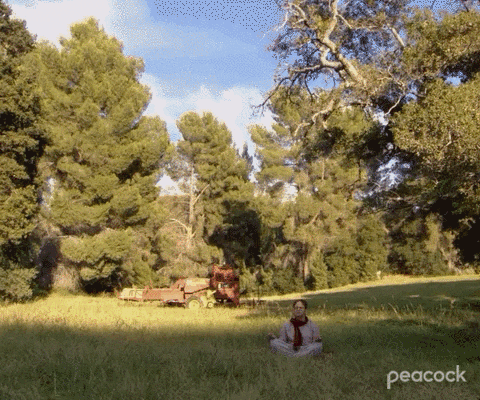
Set up a space where you feel comfortable recording.
It’s advisable to choose a space where no one is around you.
This is because of two main reasons: we feel exposed when people are around us, and the second is when we sense that someone is watching us doing something we automatically get into a fight or flight mode. We become more nervous, and our focus gets distracted.
You should also make sure that the space you record in has proper lighting and acoustics.
This ensures that any insecurities attached to how you look or how you sound don’t get invoked.
Setting up a suitable recording space is one of the easiest things we can do to record comfortably in front of the camera.
Don't worry if you make mistakes
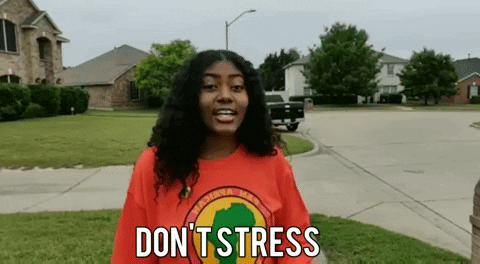
One mistake most beginners make is to think that a video has to be made in entirely one shot.
And, when they forget their lines or make mistakes while recording, they get disheartened and start everything from scratch.
If you are one of those people, please don't do it. If you forget your line or make mistakes while recording, just pause for a few seconds and start again with the same sentence you didn't complete.
You can always trim out the unwanted parts while editing.
Avoid using vocal fillers
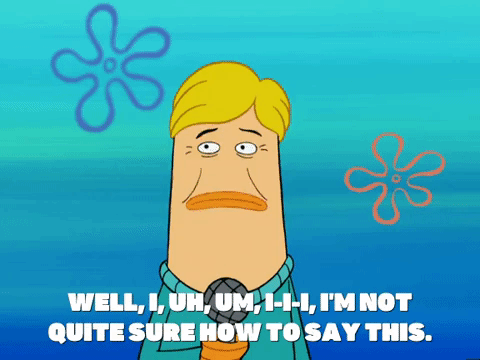
It's pretty easy to fall back to filler words when you are nervous, distracted, and are at a loss for what comes next.
The problem with these filler words is that they can distract you from your message, make you seem less confident, and make it harder for you to edit your video.
To eliminate filler words from your speech, replace them with pauses.
To train yourself from using filler words, you must first make yourself aware of the filler words you use the most. And, once you are aware of them, just begin forcing yourself to be silent.
Speak slowly, clearly, and loudly

When we get nervous, we tend to talk faster.
Try best not to rush. Try to speak slower than normal, and make yourself pause between thoughts. By doing this, you will feel calmer and look more confident.
Plus, talking slowly will give you time to recollect your talking points. It also has the added benefit of making the video easier to edit.
When you speak faster without any pauses, it can be pretty challenging to find cut points. Make it easier on yourself and take things just a bit slower.
Learn from your mistakes
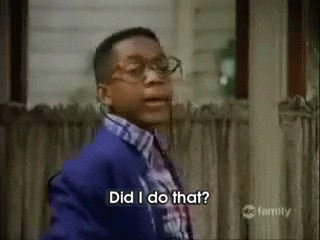
Watch all the footage you have recorded so far and see where and all you have made mistakes. Like how fast you are talking, how feeble your voice is, how robotic your expressions are, etc.
If you know where you are making mistakes or getting uncomfortable while recording, you will be better prepared the next time.
Take note of your mistakes and try avoiding them in your future videos.
If you haven't started your recording, you can rehearse using a screen recorder. Screen recorders are easy to use and require little to no setup.
You can use Vmaker's screen recording software, which is 100% free and comes with an AI video editor.
So you can see how your recording habits are affecting your video editing process from a single place.
Conclusion

Those are some of the points that you could consider while recording your next video. Just keep one thing in mind, you will start doing better with time and practice.
Maybe for the first ten times, you may feel awkward while recording your video, but the 50th time, or the 100th, it will become a normal process, and you will become comfortable.
Don't kick yourself if you weren't able to nail your video the way you wanted, and just keep trying. It will get easier.
If you enjoyed reading the above article, then here are a few more articles you might be interested in further reading!
How To Do Screen Recording Videos? 10 Step Guide With Tips & Tricks
How to Record Webinars: A Simple 5 Step Process (2023)
How to Record Online Video Lectures for Free | Lecture Recorder
How Does Video Storytelling Help Create The Best Explainer Videos?
